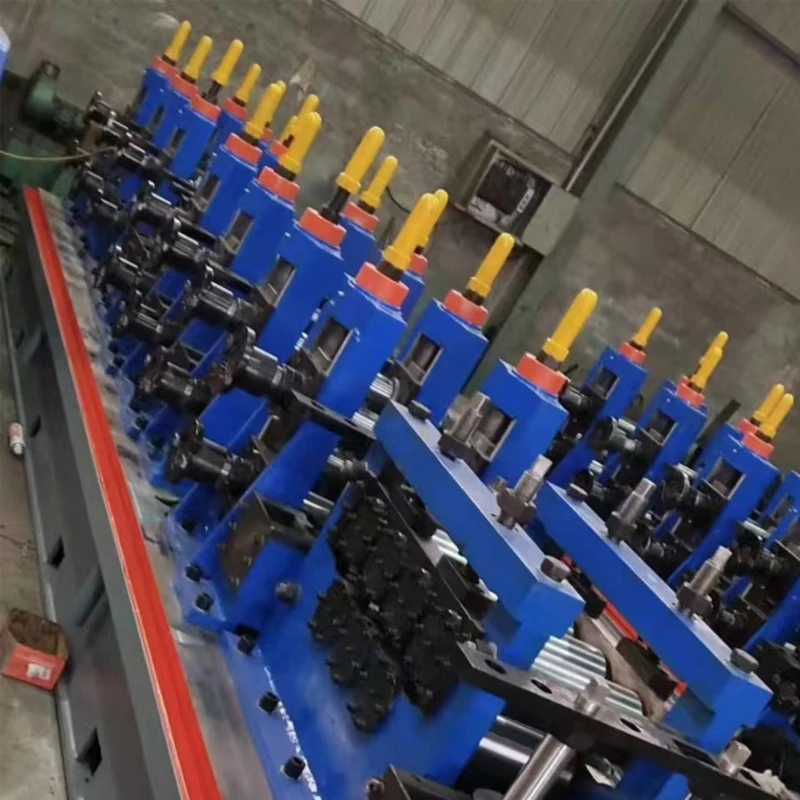Polypropylene Pipe Welding Equipment for Efficient and Reliable Joint Connections
The Advances in Polypropylene Pipe Welding Machines
Polypropylene, a thermoplastic polymer, is widely used in various applications due to its durable and lightweight nature. Among its uses, the welding of polypropylene pipes is critical in industries such as plumbing, chemical transport, and construction. Polypropylene pipe welding machines have become essential tools for professionals seeking to create robust pipe systems. This article delves into the technology behind these machines, the methods they employ, and the benefits they offer.
Understanding Polypropylene Pipe Welding
Welding polypropylene pipes involves the joining of two sections of pipe to ensure a leak-proof and durable connection. The most common methods for welding polypropylene pipes include butt welding, socket welding, and electrofusion welding. Each method has its unique set of advantages, depending on the application and the specifications required.
1. Butt Welding This method involves the alignment of two pipe ends, which are heated using specialized equipment until they reach a molten state. The ends are then pressed together, creating a fused joint. Butt welding is favored for larger diameter pipes and is widely used in industrial applications.
2. Socket Welding In this technique, one pipe is inserted into another, and heat is applied to the joint until the material melts. The connection is then allowed to cool and harden. Socket welding is often used for smaller pipes and offers a simple technique that provides a strong joint.
3. Electrofusion Welding This method uses special couplings with integrated heating elements. The couplings are placed around the pipe ends, and an electric current heats the coils, melting the polypropylene and creating a bond. This method is particularly useful for joining existing pipes in situ.
Key Features of Polypropylene Pipe Welding Machines
Modern polypropylene pipe welding machines are equipped with advanced features that enhance their performance and ease of use. Some key features include
- Digital Controls Most contemporary welding machines feature digital control panels that allow users to set temperatures, welding times, and other crucial parameters precisely. This feature helps to ensure consistent quality across welds.
- Portability Many welding machines are designed to be portable, allowing technicians to move them easily to different job sites. Some models are compact, making them suitable for tight spaces.
polypropylene pipe welding machine

- Safety Features Safety is a priority when working with high temperatures
. Many welding machines come with built-in safety features such as automatic shut-off, thermal protection, and user-friendly interfaces that prioritize operator safety.- Versatility Advanced machines can adapt to various pipe sizes and types, making them suitable for a range of applications. Some can even handle different materials beyond polypropylene, broadening their usability in mixed-material environments.
Benefits of Using Polypropylene Pipe Welding Machines
Employing dedicated polypropylene pipe welding machines offers multiple benefits
- Durability Welded joints made with polypropylene machines are exceptionally strong and can withstand various environmental stresses, making them ideal for high-pressure applications.
- Cost-Effectiveness While initial investments in welding machines may seem high, they can lead to significant long-term savings by reducing the need for replacements and repairs due to leaks or failures.
- Enhanced Efficiency Automation and digital features streamline the welding process, reducing the time required for setup and execution. This efficiency translates into increased productivity and lower labor costs.
- Environmental Considerations Polypropylene is a recyclable material, and welding techniques minimize waste by creating long-lasting joints that reduce the need for frequent replacements.
Conclusion
Polypropylene pipe welding machines are invaluable tools in modern industry, offering robust, efficient, and cost-effective solutions for pipe joining. As technology advances, the capabilities of these machines will continue to grow, further enhancing their importance in the global market. Whether in construction, plumbing, or chemical transport, investing in quality welding technology is essential for any professional seeking to ensure the integrity and longevity of their piping systems.
-
High Frequency Straight Seam Welded Pipe Production Line-BzZhou Xinghua Machinery Equipment Manufacturing Co., LTD.|Precision Welding, High EfficiencyNewsJul.30,2025
-
High Frequency Straight Seam Welded Pipe Production Line|BzZhou Xinghua|Precision Welding&EfficiencyNewsJul.30,2025
-
High Frequency Straight Seam Welded Pipe Production Line - BzZhou Xinghua|Precision Engineering&EfficiencyNewsJul.30,2025
-
High-Frequency Straight Seam Welded Pipe Production Line-BzZhou Xinghua Machinery Equipment Manufacturing Co., LTD.NewsJul.30,2025
-
High-Frequency Straight Seam Welded Pipe Production Line-BzZhou Xinghua Machinery Equipment Manufacturing Co., LTD.|Precision Manufacturing, High EfficiencyNewsJul.30,2025
-
High Frequency Straight Seam Welded Pipe Production Line-BzZhou Xinghua Machinery Equipment Manufacturing Co., LTD.|Precision Steel Pipe Manufacturing&Industrial EfficiencyNewsJul.29,2025


